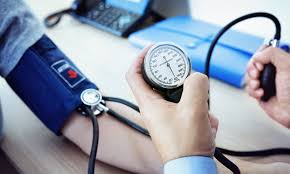
Exercise can raise blood pressure, but its effects are usually temporary. Your blood pressure should gradually return to normal after you finish exercising.
The sooner your blood pressure returns to resting level, the healthier you will probably be.
The effect of exercise on blood pressure
Aerobic activities such as swimming, cycling, and running increase the extra demands on your cardiovascular system. Your muscles need more oxygen at rest, so you need to breathe faster.
Your heart begins to pump harder and faster to circulate oxygen to your muscles. As a result, systolic blood pressure rises.
Exercise for people who are at risk for high blood pressure
Exercise is safe if you are at risk for high blood pressure. Regular exercise can help you maintain your blood pressure.
If you are at risk for high blood pressure, talk to your doctor about the safest way to exercise. This may include the following:
-
Use medication to lower blood pressure
-
Choice of medium activities
-
Work up to daily exercise
-
If you are worried about your blood pressure, you can monitor it before, during, and after your workout.
Exercise for people with low blood pressure
If you have low blood pressure, talk to your doctor before starting a new exercise program.
Exercise can cause symptoms such as dizziness, blurred vision, and nausea.
Complications of high blood pressure
Hypotension during exercise can be a sign of a medical condition.
A significant increase in blood pressure during or after exercise can be a sign of:
Seek medical attention if your blood pressure rises rapidly to read 180/120 mm Hg or more.
Uncontrolled blood pressure in this area can be a sign of a heart attack or stroke.
Low blood pressure
A significant drop in blood pressure after exercise is a risk factor for developing
high blood pressure and certain types of heart disease.
While most people experience a slight drop in blood pressure after exercising, reliable source research shows that people with high blood pressure experience a significant reduction in blood pressure.
When to see a doctor
Talk to your doctor if you notice any of the following:
-
Your blood pressure is after exercise.
-
Your blood pressure will drop after exercise.
-
Your blood pressure does not change during exercise.
-
Your systolic blood pressure (auction) is more than 200 mm Hg during or after exercise.
-
Your diastolic pressure (low number) changes during exercise.
-
Your blood pressure reading during or after exercise is more than 180/120 mm Hg.
In general, see your doctor if you are concerned about your blood pressure.
Tips on exercise safety
Exercise can help regulate blood pressure. If you have high blood pressure or are at risk for high blood pressure or have high blood pressure, the following tips can help you improve your immunity:
-
Exercise a little every day to control your blood pressure.
-
If you are not active but want to be more active, see your doctor or healthcare professional.
-
Avoid moderate activities such as walking, swimming, or cycling. Gradually increase the length and intensity of your workout.
-
Warm-up before exercising to prevent injuries.
Gradually stop exercising. Cohabitation is very important for people with high blood pressure. This allows you to slowly return to your heart rate and blood pressure before exercising




